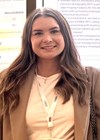Driven by a strong desire to pursue a career in medicine, I was lucky to get an opportunity to attend the Urology Boot Camp at Leeds while still in sixth form. Although urology is a postgraduate specialty, I wanted to explore procedures, see clinical reasoning being carried out, and I hoped to turn this experience into a valuable career insight.
It was intense! I walked into the conference hall thinking I was mentally prepared – even if I don’t understand anything, I’m just here to learn with zero background knowledge and to see something exciting. I stepped inside, and it was immediately intimidating. Not only was the event super professional, but even the size of the venue, with multiple areas with different technological equipment, intimidated me. However, it made me wonder whether this is a glimpse of my future attending similar boot camps when I become a doctor. I didn’t know whether to be afraid or excited, but I tried to remain calm.
Waves of people were slowly filling the hall, and it was quite amusing to notice no one wanted to sit near the front. The organisers even joked around, saying they wouldn’t bite. My age group, ‘Gen-Z’, don’t sit at the front either, scared that we’ll be picked on, and seeing that even qualified doctors can feel the same way was oddly reassuring. Clearly, even experts must keep developing and at every stage of a career, there will always be something new to learn.

Performance enhancement and well-being coaching session (A); Virtual reality simulators to learn minimally invasive surgery for benign prostate (B); Dealing with urology emergencies using a mannequin (C); Practising basic laparoscopic skills (D).
I was assigned to observe and help with Module 7 the ‘Non-Technical Skills: Simulated Ward Round and Simulated Outpatient Clinic’. With a bit of uncertainty about what that could be, I initially arrived to find the atmosphere welcoming and quiet. But it turned out to be the calm before the storm.
There was a quick briefing, and all I understood was, “Stress them out as much as possible; this will cause them to experience cognitive overload”. I was tasked with role-playing a first-year medical student – eager and intuitive, asking senseless questions at the most inappropriate times possible.
Utter chaos left, right and centre. Nurses trying to take observations, lunch ladies serving breakfast, abrupt doctors from other wards complaining that they were short-staffed, constant phone calls from various specialties, annoyed professors, unhappy relatives, other patients needing attention. And there I was, walking around the ‘ward’ like a lost sheep, trying to add more fuel to the fire. Initially, I found it very difficult. I didn’t fully know what I was supposed to do, or how much to prod them as there were multiple occasions when I felt guilty interrupting the doctor who was currently acting as the senior registrar. But I self-reasoned, this simulation exercise is designed to mimic the relentless pressure of real-life medicine. And it was all part of their learning process. Because I wasn’t even a medical student, some of my questions came from genuine curiosity. But, of course, many questions I asked were to deliberately derail their flow. They were rapidly throwing out words and phrases like they were common knowledge: irrigation, urethral obstruction, kidney stones, haematuria, the OBS stats, why a ureteroscopy was needed. Either too long to understand or too confusing to grasp, but I admired their composure and teamwork.
Later I went to observe another module – robotic surgery – but quickly realised that it might be too technical for me and of little learning value at my stage. Instead, I decided to observe the A&E simulation. Although I did not role-play in this, it was intriguing to see how each doctor used the simulation’s instruments and teamwork efficiently. The doctors knew when to push their limits and when to call for help, whether that was to call another doctor, nurse or another department. This module demonstrated the value of determining and acting upon your limits. Working at your full potential but stepping down and receiving guidance and help when needed, to ensure excellent patient care. Everything in the simulation was to a highly realistic degree, from the never-ending phone calls to the monitor’s unceasing beeping. Even as an observer I was beginning to get nervous and my pulse got quicker when the simulated patient deteriorated. It was clear, patient stabilisation and treating the life-threatening problems were the priorities and then the other issues at hand were dealt with accordingly.
The Urology Boot Camp left a lasting impact on me. I realised how much there was to learn, not just about medicine but also resilience, communication, teamworking and adaptability.
It allowed me to envision what it will be like to be a doctor further down the line, as before this experience, I was only knowledgeable of the tough ‘race’ to get into medicine, rather than the more important aspect: actually becoming a doctor. I was able to see medicine in practice rather than the theoretical side to it. I also learnt how urology continuously evolves using rapidly advancing technology and robotics to its advantage, and how urology is a vital consideration in overall health as it covers a large umbrella of problems and treatments.
For now, I am still an amateur, but this experience has made me even more determined to study and learn so that someday, hopefully, I’ll be part of this world.
Declaration of competing interests: None declared.








